Amelia Earhart and singer Melissa Etheridge among Kansas’ influential Women of the Century
Clarina Nichols first gained national recognition in the early 1850s for her newspaper editorials supporting women’s rights and the abolitionist party in the Kansas Territory. She traveled throughout the progressive territory giving lectures and gathering signatures on petitions, which motivated delegates to the Wyandotte constitutional convention in 1859 to ask her to address the all-male assembly.
Sitting in the convention hall, Nichols knitted as she listened to the delegates debate the constitution of the future state of Kansas. When it came time for her to speak, she presented a petition calling for equal political and civil rights for Kansas women. The final version of the Wyandotte Constitution mirrored Nichols’ vision: women’s rights in child custody, married women’s property rights, and equality in public schools.
The Kansas equal suffrage campaign launched in 1867 and Nichols was among the women leading the charge. Kansas voters, however, rejected amendments for both women and African American suffrage.
But the suffrage supporters didn't give up. Picking up the baton nearly 45 years later was Lucy B. Johnston, a political and social activist who was president of the Kansas Equal Suffrage Association. Instead of aligning with a political party, Johnston aimed her efforts at a grassroots campaign to raise money; speaking tours with nationally known suffragists; suffrage amendment endorsements from women’s organizations; and recruiting men to the cause.
In 1912, eight years before the 19th Amendment was ratified, Kansas women won the right to vote in national elections.
To commemorate the 100th anniversary of the 19th Amendment in August, the USA TODAY Network is recognizing 10 American women from each of the 50 states and the District of Columbia as Women of the Century, based on their contributions to their states and the country.
Some of the Sunflower State’s most remarkable women didn’t meet the guidelines for the project or were a hair under the top 10 cutoff when the robust debating over nominees was over.
One of them was Marilynn Smith, who racked up 21 LPGA Tour titles and was among the 13 women golfers who founded the Ladies Professional Golf Association in 1950.
Who hasn’t been mesmerized by multi-talented Janelle Monae, an eight-time Grammy Award-nominated singer who has collaborated with musical icons such as Prince, Stevie Wonder and Brian Wilson? Her big-screen credits include “Hidden Figures,” “Moonlight,” “Welcome to Marwen” and “Harriet.”
Are you registered to vote? Take the first step to making sure your vote counts.
Not making the list was feminist Anna Marcet Haldeman-Julius. She and her husband, Emanuel, were publishers of the Appeal to Reason, the nation’s largest socialist periodical, and the Little Blue Books, the first mass-market paperbacks in the United States. From 1919 to 1951, their press printed more than 500 million Little Blue Books in more than 6,000 different titles.
Helping shape how Americans perceived Africa in the first half of the 20th century was explorer Osa Johnson. She and her husband, Martin, were travel photographers and film producers known for documenting their African safari and South Seas adventures in eight feature movies, thousands of photos and nine books.
So many deserving Kansas women, and a mere 10 spots to fill.
Ultimately, Kansas’ top 10 list represents the intellect, resiliency, political savvy, business acumen, adventurous nature and stellar talent of the women who have called the state home.
Who is your Woman of the Century? Did we miss a woman you think should be on our list? We’d like to hear from you.
Amelia Earhart
Aviation pioneer
(1897-1937)
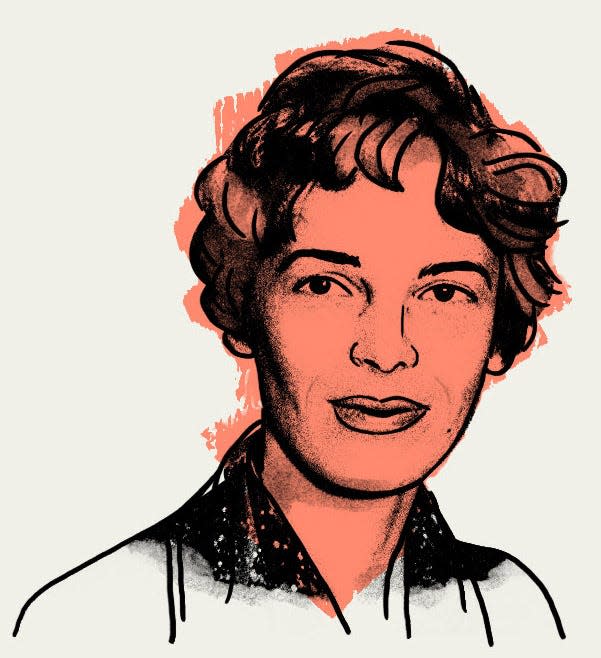
Earhart captured the world’s admiration as she set a record flying solo across the Atlantic Ocean, becoming a symbol of the perseverance of women and the American spirit of adventure.
Earhart, a native Kansan who was a nurse’s aide with the Red Cross during World War I, began taking flying lessons in 1921 in California and soon purchased an airplane. The international spotlight first shone on her in 1928, when, as a passenger on a seaplane, she became the first woman to fly nonstop across the Atlantic.
Earhart’s celebrity was elevated in May 1932, when she navigated her Lockheed Vega from Newfoundland to Ireland – 14 hours, 56 minutes – to become the first woman to make a solo transatlantic flight. Later that year, she became president of the Ninety-Nines, an organization she helped establish for female pilots.
Earhart, who also wrote books about her adventures, continued to break flight records. In June 1937, she set out to follow her dream: flying around the world at the equator. On July 2, 1937, after flying 22,000 miles, Earhart, her navigator and her twin-engine Lockheed Electra vanished between New Guinea and Howland Island in the Pacific Ocean. Their disappearance remains a mystery.
Nancy Kassebaum Baker
First woman to represent Kansas in the U.S. Senate
(1932- )

Kassebaum Baker was born into Kansas political royalty but made her own mark once she was elected to Congress. She was the first woman to represent Kansas in the U.S. Senate and the first woman to chair a major Senate committee.
Kassebaum Baker, the daughter of Alfred Landon, 26th governor of Kansas and 1936 Republican presidential nominee, carried on her father’s legacy by earning a master’s degree in diplomatic history and working for Republican Sen. James Pearson’s office in 1975. When Pearson decided not to seek reelection, Kansas voters picked Kassebaum Baker to fill his seat. “I believed I could contribute something, that I had something to offer,” she said.
Kassebaum Baker, who served in the Senate from 1978 to 1997, was known for her work on women’s rights and health care. She co-sponsored the Health Insurance Portability and Accountability Act. She also was chairman of the Committee on Labor and Human Resources and a senior member of the Foreign Relations Committee. Along with Sen. Bob Dole of Kansas, Kassebaum Baker introduced a bill in 1994 that would lead to the creation of the Tallgrass Prairie National Preserve, a 10,894-acre national park in the Kansas Flint Hills.
Lynette Woodard
Two-time U.S. Olympian, WNBA player and first female member of the Harlem Globetrotters
(1959- )

Woodard revolutionized collegiate and professional women’s basketball. She was a four-time first-team All-American player at the University of Kansas, two-time U.S. Olympian and WNBA player.
At KU, Woodard was women’s collegiate all-time leading scorer with 3,649 points. In 1996, she was named the greatest female player in Big Eight Conference history, scoring more than 400 points more than any other woman in conference history and setting a rebound record of 1,716.
The 6-footer was selected for the 1980 Olympic women’s basketball team, which didn’t participate in the Moscow games because of a U.S.-led boycott protesting the Soviet-Afghan War. In 1984, the Olympic team, with Woodard as captain, won the gold medal in Los Angeles. A year later, Woodard became the first female member of the Harlem Globetrotters.
After two years with the Globetrotters, Woodard competed professionally on Italian and Japanese teams. In 1997, she was signed by the Cleveland Rockers of the newly formed WNBA. The next year, she played for the Detroit Shock.
Among her honors are inductions into the Women’s Basketball Hall of Fame and the Naismith Memorial Basketball Hall of Fame.
Lucinda Todd
Teacher and education activist
(1903-1996)
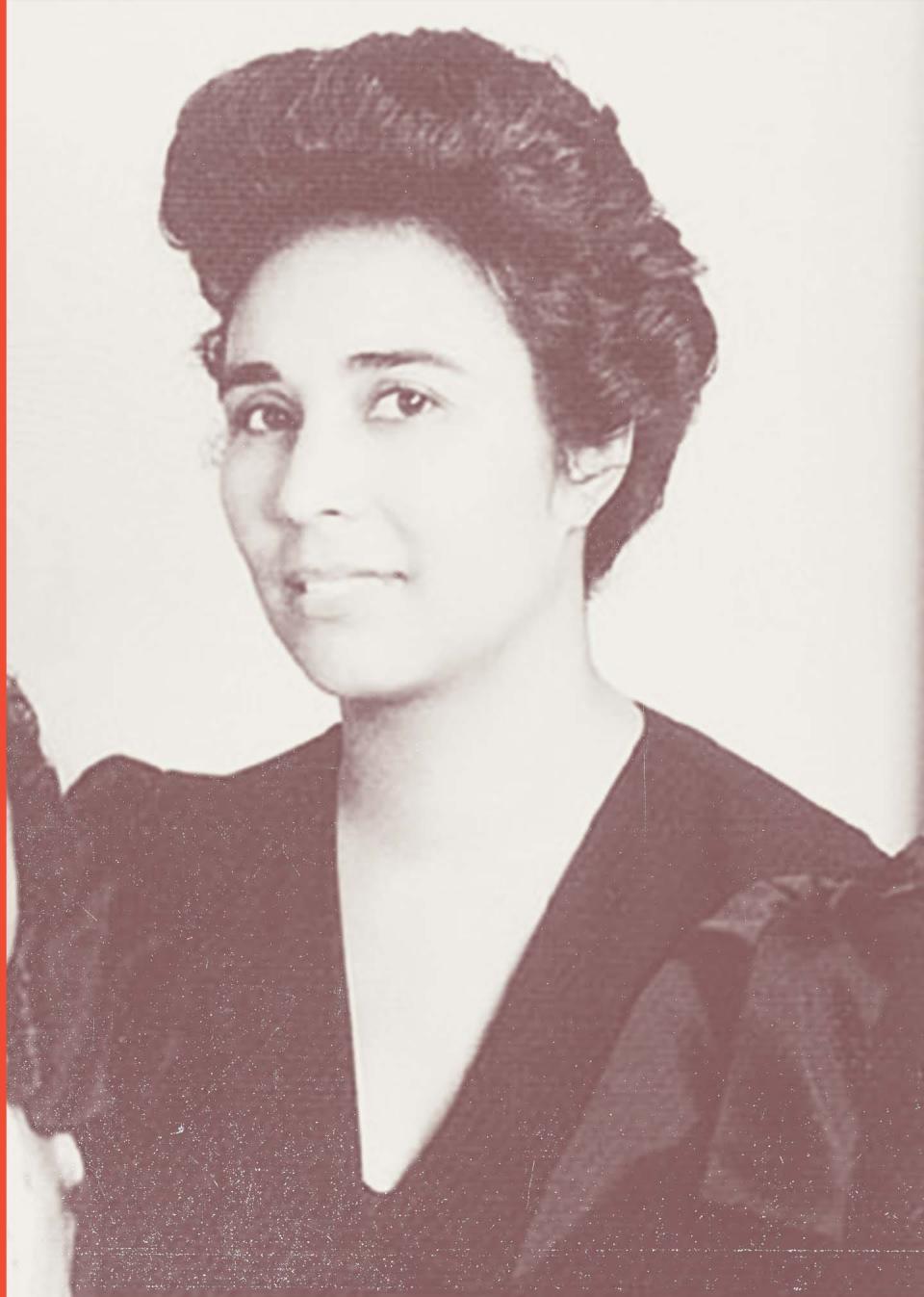
Todd fought to advance educational opportunities for African-American students and played a key role in the Brown v. Board of Education lawsuit, which resulted in the U.S. Supreme Court decision striking down school segregation.
After Todd was forced to quit her teaching job because she married, she became secretary of the Topeka chapter of the NAACP. When a local newspaper column described the chapter as a “militant group” trying to disband “colored schools,” Todd replied, “If by wanting my child to have equal education I am being ‘militant,’ then thank God I am militant.”
In 1951, Todd was the first of 13 parents to sign on as a plaintiff in a class-action lawsuit against the Topeka Board of Education in the U.S. District Court. Their children were denied enrollment in nearby white schools and had to ride a bus to an all-Black school. The court sided with the school board, ruling the schools “separate but equal.” When the NAACP decided to take the case to the Supreme Court, Todd helped raise money to cover costs.
In May 1954, the Supreme Court issued its landmark school desegregation decision, and Todd returned to teaching.
Georgia Neese Clark Gray
First female treasurer of the United States
(1898-1995)

Gray was an actress and banker who became the first woman to hold the office of U.S. treasurer.
After graduating in 1921 from Washburn College in Topeka, Gray enrolled at the Franklin Sargent School of Dramatic Art in New York City. She performed with stock companies for about 10 years, until acting jobs dried up during the Depression. She returned to Kansas and began working in 1935 at her father’s bank in her hometown of Richland. Two years later, after her father’s death, she took over as bank president.
Active in the Kansas Democratic Party, Gray was elected national committeewoman from 1936 to 1964. She was a backer of President Harry S. Truman, which influenced her appointment as the first female U.S. treasurer. She served in that position from June 1949 to January 1953, when Truman left the presidency. Americans grew to recognize Gray’s signature – “Georgia Neese Clark” at that time – because it appeared on $30 billion worth of paper money issued while she was in office.
Gray returned to Kansas to work in her family’s banking business. She moved the Richland bank to Topeka and renamed it Capital City Bank in 1964. The bank grew to have 11 locations and more than 100 employees before being sold in 2018.
Eva Jessye
Acclaimed professional choral group director
(1895-1992)
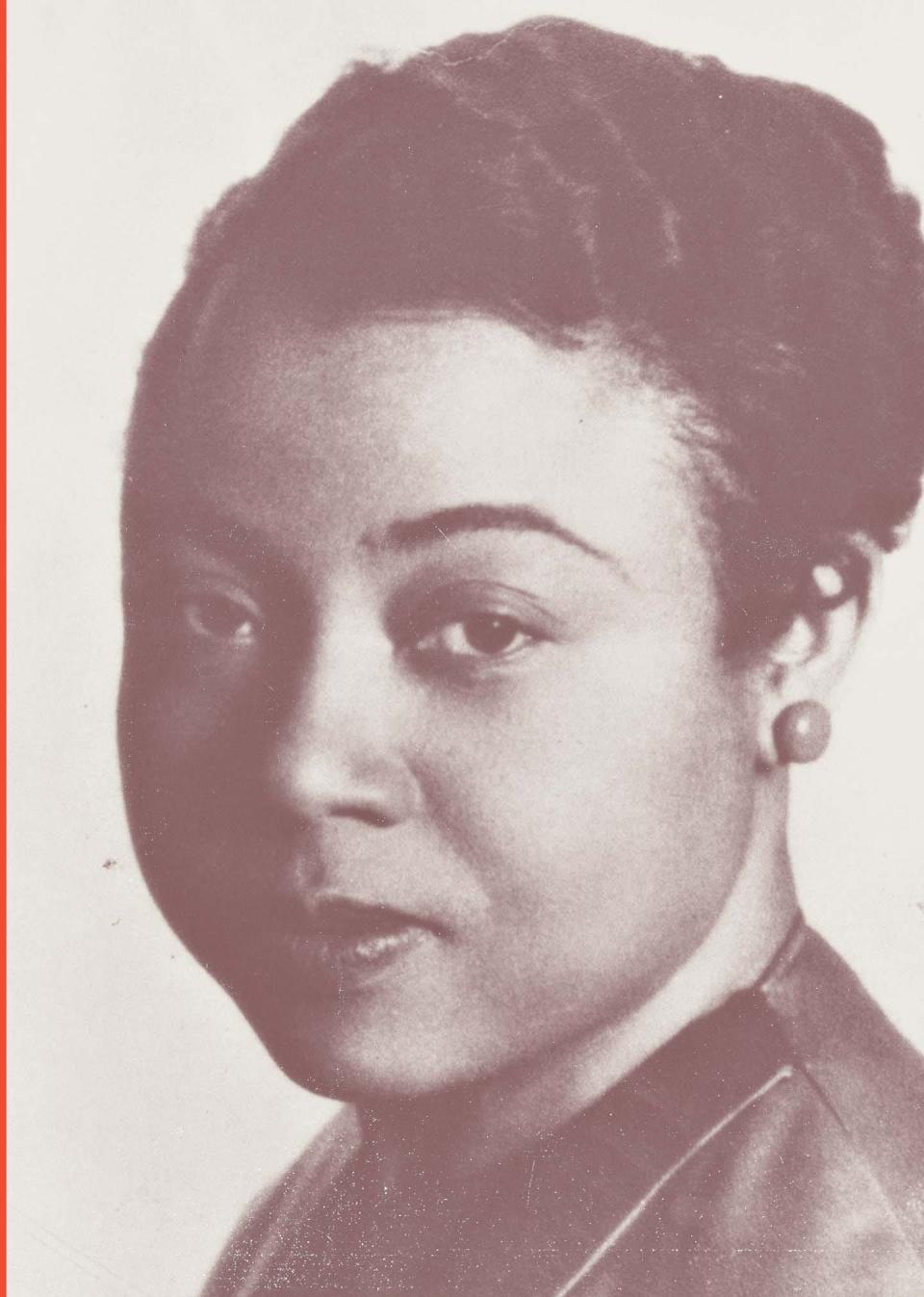
Jessye was the first African American woman to win international acclaim as a professional choral group director. She also was a singer, actress, author and poet.
After careers as a teacher and reporter, Jessye in 1926 joined the Dixie Jubilee Singers, a New York-based choral group later known as the Eva Jessye Choir. The singers performed jazz, spirituals, light opera and other musical styles for film, radio and stage. In 1927, the choir contributed to the film “Uncle Tom’s Cabin,” and Jessye published “My Spirituals,” a critically acclaimed collection of songs from southeast Kansas.
Composer George Gershwin chose Jessye in 1935 to be choral director for “Porgy and Bess.” For the next 30 years, Jessye was affiliated with nearly every production of the popular folk-opera worldwide. In 1963, Martin Luther King Jr. asked the Eva Jessye Choir to be the official chorus for the historic March on Washington.
In the 1970s, Jessye – who said “If I belong to anything, I belong to my music” – established the Eva Jessye Collection of Afro-American Music at the University of Michigan and the Eva Jessye Collection at Pittsburg State University in Kansas.
Melissa Etheridge
Singer-songwriter, guitarist, activist
(1961- )
Singer-songwriter Etheridge is known for her Grammy Award-winning rock songs, her activism and her openness about her sexual orientation.
Etheridge attended the Berklee College of Music in Boston for a year and then moved to Los Angeles to try to break into the music industry. She was signed to Island Records in 1986. Six years and four albums later, she won a Grammy for best female rock vocal performance for “Ain’t It Heavy.” Her six-times platinum album, “Yes I Am,” chartered for more than 2½ years. She scored another Grammy in 1994 for the song “Come to My Window.” In 2007, Etheridge won an Academy Award for “I Need to Wake Up” in the best original song category. In 2011, she received a star on the Hollywood Walk of Fame.
At a celebration of the inauguration of President Bill Clinton in early 1993, Etheridge announced she was a lesbian and quickly became a gay and lesbian rights icon. In June 2016, she released “Pulse,” a song written in reaction to a mass shooting at a gay nightclub in Orlando, Florida.
Etheridge was diagnosed in 2004 with breast cancer. She spoke publicly about her experience with the disease and its successful treatment. As an environmental advocate, she toured in 2006 using biodiesel.
Kathleen Sebelius
Former Kansas governor and U.S. secretary of health and human services
(1948- )
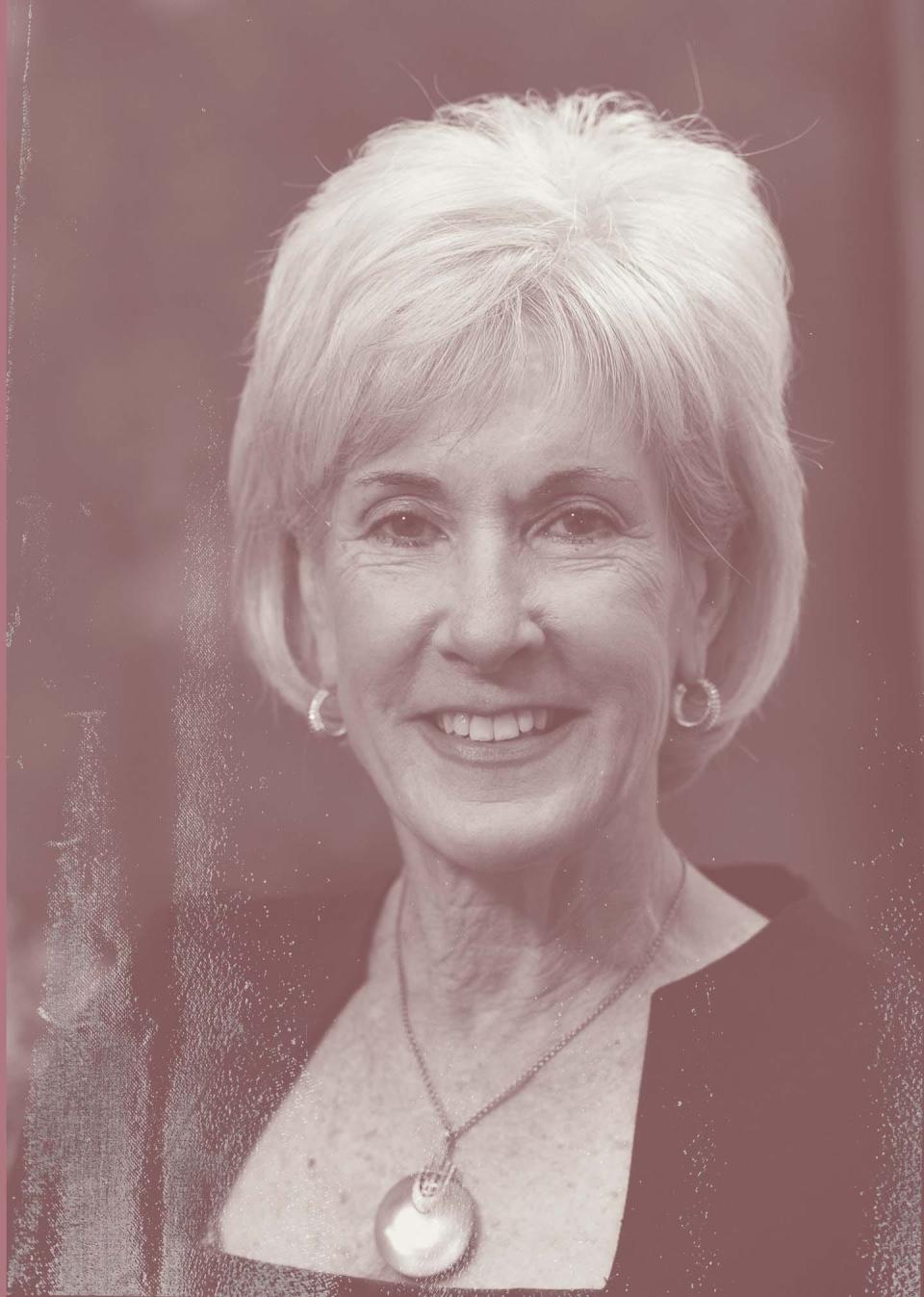
Sebelius was elected the 44th governor of Kansas in 2002. She resigned in 2009 after President Barack Obama appointed her secretary of the Department of Health and Human Services, where she worked to pass and implement the Affordable Care Act.
Sebelius served eight years in the Kansas House and eight years as Kansas insurance commissioner before becoming the second woman to be elected Kansas governor. Sebelius followed in the footsteps of her father, John “Jack” Gilligan, governor of Ohio from 1971 to 1975. She is the only daughter of a governor to be elected governor in U.S. history.
At HHS, Sebelius managed 11 operating agencies, about 90,000 employees in 50 countries and a $1 trillion budget. Under the ACA, she implemented reforms that ended insurance industry abuses and helped millions of uninsured Americans get health coverage. Forbes named her one of the 100 most powerful women in the world in 2009, 2010 and 2011.
Sebelius resigned from her HHS post in 2014. Today, she is CEO of Sebelius Resources, which provides strategic advice to companies, investors and nonprofit organizations.
Olive Beech
Co-founder of aircraft company; known as “First Lady of Aviation”
(1903-1993)
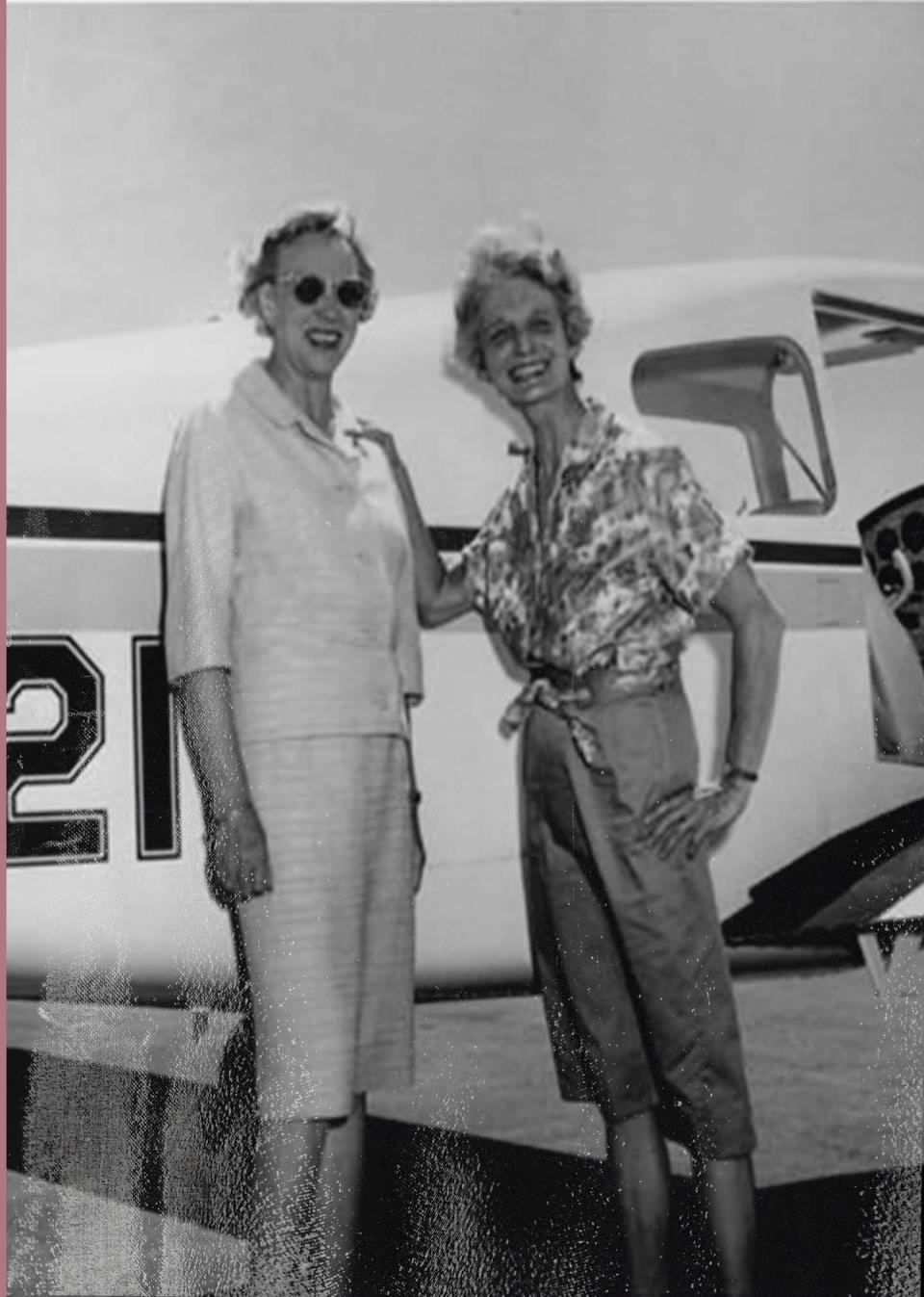
Beech was the first woman to head a major aircraft company and be awarded the National Aeronautics Association’s Wright Brothers Memorial Trophy. Known as the “First Lady of Aviation,” she was inducted into the National Aviation Hall of Fame in 1973.
Beech was hired as bookkeeper-secretary of Wichita’s Travel Air Manufacturing Company in 1925. She became the personal secretary to company co-founder Walter Beech. They married in 1930 and two years later formed Beech Aircraft Company in Wichita. In 1934, they introduced the Beechcraft Staggering biplane designed for airline and corporate needs.
When her husband grew ill in 1940, Beech led the company temporarily. Beech Aircraft boomed during World War II because of the demand for military aircraft. By the war’s end, the company had built more than 7,400 military planes. After her husband’s death in 1950, Beech became president of the company, which eventually supplied products to the Department of Defense and NASA’s Gemini, Apollo and space shuttle programs.
In 1980, Beech Aircraft merged with Raytheon. Beech was elected director of Raytheon and chair of Beech Aircraft. During her 43 years with the company, its employee roster grew to more than 7,800 and annual sales skyrocketed to about $265 million.
Minnie Evans
Tribal chairwoman of the Prairie Band of Potawatomi Nation
(1888-1971)
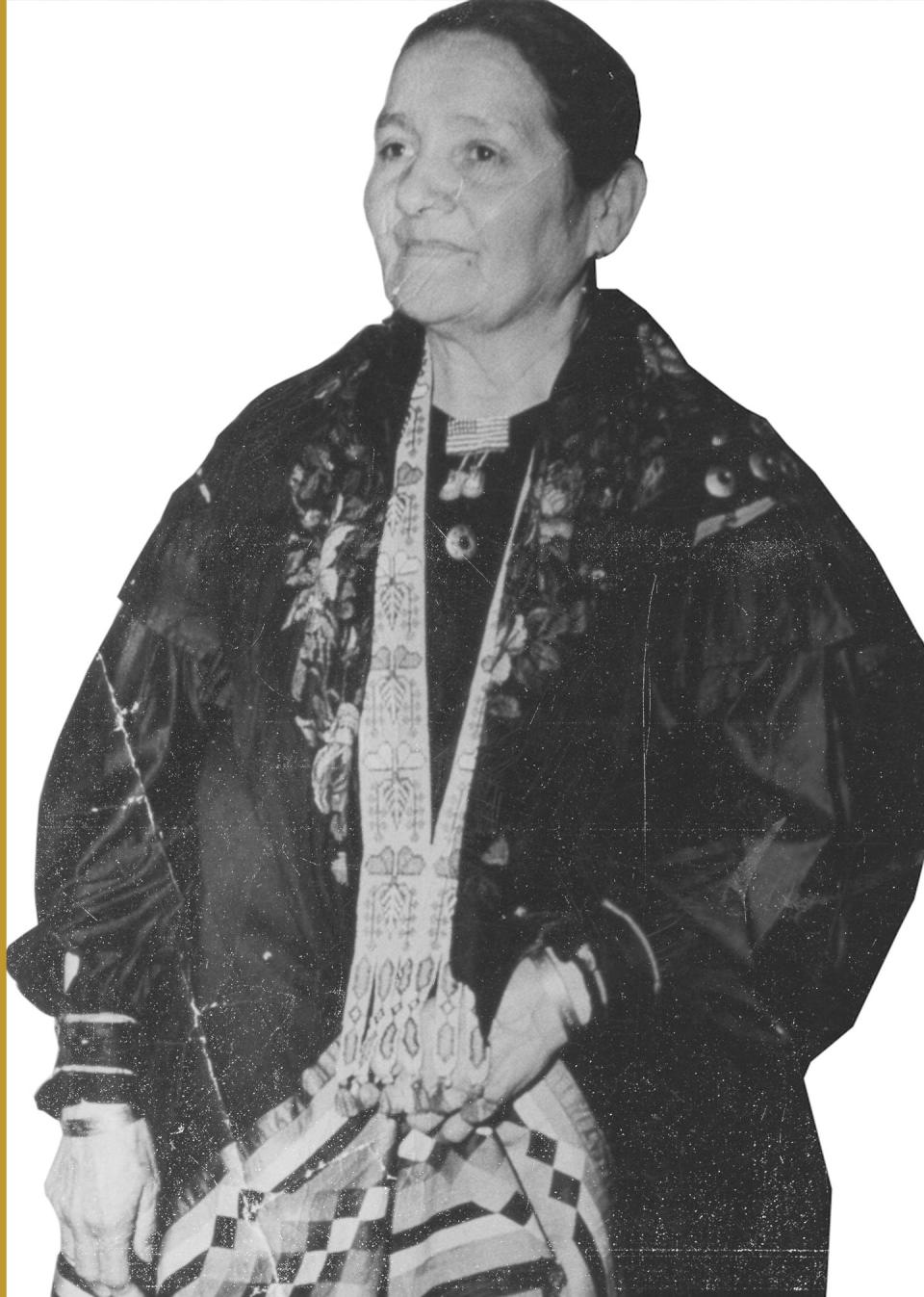
Evans was a tribal chairwoman of the Prairie Band of Potawatomi Nation who successfully fought against Congress in 1954 to stop the termination of the tribe. She also engaged in an almost 30-year battle for reparations with the Indian Claims Commission.
In 1953, Congress passed a resolution that called for the termination of many Indian tribes in the United States, including the Prairie Band of Potawatomi Nation and three other tribes in Kansas. Evans opened her home for meetings to devise ways to defeat the resolution, build consensus and raise money to send tribal leaders to congressional hearings. In February 1954, Evans and other Prairie Band leaders were among those testifying in a joint hearing of the House and Senate subcommittees on Indian affairs. The effort to terminate the tribes was defeated.
In 1946, Evans became tribal chair of the Tribal Council Claims Committee and submitted a claim for reparations with the Indian Claims Commission. In 1956, Prairie Band and its co-claimant, the Citizen Band of Potawatomi, were awarded $3.2 million. However, several court cases followed, with different groups vying to get part of the money and intertribal disagreements about which Prairie Band members or descendants were entitled to the award. By the time the reparation payments began, Evans was no longer involved in tribal leadership.
More coverage
Women of the Century: They didn’t succeed despite adversity, but often because of it
50 states: Learn about notable women from every state
Who is your Woman of the Century?: Let us know
Recognizing women past and present: See all of our coverage
Special thanks to Daphne Maxwell, member of Kansas African American Affairs Commission, Junction City; Nancy Sherbert, former head of acquisitions at the Kansas Historical Society, Auburn; Bonita Gooch, editor of The Community Voice, Wichita; Ronnie Padilla, longtime community activist, Topeka; Jackie Mundt, communications and marketing manager at Kanza Cooperative Association, Pratt; Michel' Cole, former vice president of corporate communications and public affairs at Westar Energy, Topeka; Megan Rohleder, senior archivist at Kansas State Historical Society, Topeka; Patricia Michaelis, former director of the Kansas State Archives, Topeka; Jan Biles, former journalist at The Topeka Capital-Journal and Lawrence Journal World.
Sources used in the Women of the Century list project include newspaper articles, state archives, historical websites, encyclopedias and other resources.
This article originally appeared on USA TODAY: Women of the Century Kansas list includes Harlem Globetrotters player

